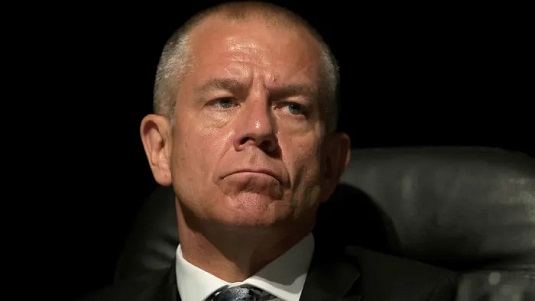
Another crisis for Keir Starmer following hot on the heels of the Labour leaks scandal? Not terribly so. The allegations Roache faces are not factional, but speak to the wider cultural problems within the trade union movement. As for the politics, I don't think it makes much of a difference to the balance of power in the party. In his New Statesman email, Stephen Bush suggested it's potentially problematic because Keir could count on the GMB's support on Labour's NEC. As he rightly argues, a strongly positioned leader should have multiple ways of building majorities on an issue-by-issue basis, whereas Jeremy Corbyn was dependent on Unite to get his way. The implosion of Roache puts one of those avenues of coalition forming into doubt.
This is probably not the case. Roache certainly won his re-election handsomely back in November, beating Kathleen Walker Shaw by 30,656 votes to 19,576 on a miserable 8.5% turnout (actually a big improvement on the 4.2% that saw Roache elected in 2015). However, the vote itself was not without controversy. Kathleen, who is the union's European officer, was initially excluded from the ballot by shenanigans. Under GMB rules anyone running for the highest office requires 50 nominations from branches, a time consuming process that always favours officials with the contacts and time to build up support. Despite meeting the threshold with 57 nominations, the Finance and General Purposes committee tried excluding her on grounds she would not be able to fulfil the duties of the top job, even though she had worked for the union for 26 years. A grotesque stitch up of the old school in other words, and one happily overturned on appeal. Yet this wasn't a political challenge and more a bureaucratic turf war in which one full-timer simply tried her hand against an incumbent wanting to entrench his privilege. Though according to persistent whispers in and around the GMB, Kathleen was something of a stalking horse on behalf of the Kenny clan. Long time readers will recall Paul Kenny receiving a knighthood just prior to vacating the GenSec role. Warren Kenny, a chip off the old block and presently London region's secretary is known to fancy Dad's old gig - it would be surprising if he doesn't throw his hat into the ring and run to replace Roache.
Given the incumbency factor crowding out grassroots challenges, being a union not known for its left wing full-timers, and having endorsed Lisa Nandy in the leadership election, chances are good that the personnel may change but the politics will stay the same on Labour's NEC. In fact, not only that but some of Labour's right will be pleased to see the back of Tim Roache too. Not because he was a comrade or showed any tendency in that direction, though many of the positives of Kenny Sr's reign on the organising front were built on (despite the introduction of some sharp practices). He was, from a party factional point of view, unreliable. Not a Corbyn supporter by any stretch, during the 2016 coup Roache refused to go along with the aborted putsch. At the time he said "This is about democracy and respecting the Labour Party’s democratic process. Jeremy has a strong mandate, and it’s hugely disappointing that this is not being respected." Though come the summer he was backing Owen Smith, after a membership referendum with a slightly skewed question ("Who do you think is best placed to lead the Labour party to a general election victory and serve as prime minister?”) endorsed him over and above the Labour leader. Eyebrows were also raised with the formation of Change UK, Gawd rest its soul. Roache did not go along with the line that the splitters were "forced out" and instead condemned them for attacking the policies and aspirations if trade unionists. Nor was he impressed by Tom Watson's hard remain antics, calling them "wholly unwelcome". Episodic alignment with their schemes in a union they've come to regard as "theirs" certainly rankled, and they hope - though don't have the muscle themselves to ensure - the next one in the top job will be fully onside.
Trade unions are essential organisations and everyone should join their workplace union. But they are not passive organisations, their efficacy and democracy depends on how active the membership are. If they are quiescent, all kinds of skulduggery and bad behaviour gets a free pass. Not to mention backroom deals and politics that ultimately shaft our movement as a whole. When the full details of the Tim Roache case come out, serious questions will be asked about how this was allowed to continue and an unwelcome light will be shone by our enemies on the murkier practices of our movement. The best way, the only way to cleanse ourselves of this muck is by getting stuck in and applying the huge broom of democracy to the lot. Because if we don't, the Tories will.
Image Credit
No comments:
Post a Comment